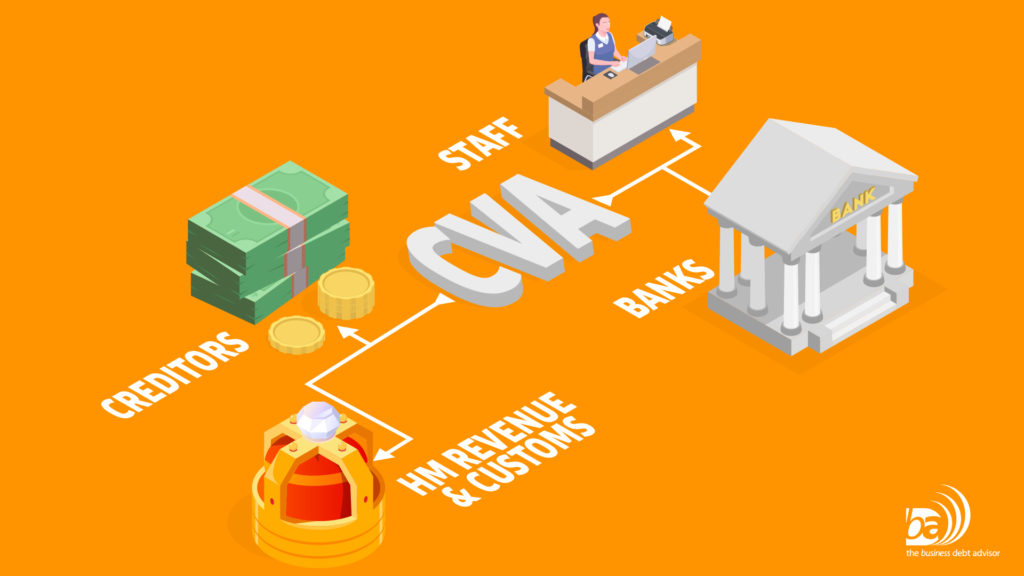CVA’s – an increase on the cards to deal with Covid 19 debt?
Many thousands of businesses are likely to emerge from the Covid lockdown debt laden through no fault of their own. Incomes for most businesses apart from the food industry will be affected and owners will have no choice but to look to defer PAYE and VAT, furlough staff which will halt the businesses progress, defer rent payments, take on Business Interruption loans.
Whilst there is some help for businesses including the loans, employee retention scheme and rates holidays or grants, the help will be needed to fund core costs and will not prevent the build up of debt.
CVA as a remedy
In a blog by Companies House in early 2019, they likened the CVA process to a rescue by a Saint Bernard.
The CVA could certainly become a very useful lifeline to businesses that enables companies to hold onto their assets and carry on trading, directors to retain control, landlords to keep hold of a tenant and creditors agree a deal which permits repayment of some or all the accumulated debt plus allow continuity of the business.
HMR & C and CVA’s
HMR & C have indicated that they are likely to take a more supportive stance to CVA’s where the debt build up is linked to the pandemic. They are likely to be major creditors with companies at present deferring VAT, PAYE and possible even Corporation tax payments.
Landlords and CVA’s
The government announced measures in March to protect commercial tenants who are unable to pay their rent because of Covid 19 and who face eviction. These measures are not part of the Coronavirus Act which came into force on 25 March and provide:-
- A landlord is unable to exercise a right of re-entry or forfeiture (termination) of a tenancy for non-payment of rent from the day after the Coronavirus Act comes into force (26 March) until 30 June 2020 (the ‘relevant period’). The relevant period may be extended by the Secretary of State. ‘Rent’ includes any sum a tenant is liable to pay under a business tenancy, including insurance rent and service charge.
- For existing litigation based on forfeiture for rent arrears, a tenant cannot be evicted until after the end of the relevant period (currently 30 June 2020).
- Failure to pay the rent during the relevant period cannot be treated by the landlord as persistent delay in paying rent.
Continued communication with the landlords will be key to ensure that if a CVA is appropriate, they are likely to support the proposals.
CVA’s – Do they work?
A CVA in itself cannot repair a struggling business. But, it can provide an opportunity for it to consider what works well, and what doesn’t. With the help of an experienced Insolvency Practitioner, a CVA can be an opportunity for a business to make operational changes which would enable it to return to profitability.
The process has received some negative publicity, particularly from Landlords. A number of struggling retailers (Carluccio’s – now in Administration, House of Fraser and Mothercare) all sought approval for CVA’s which required landlords to accept lower rent, in order to avoid financial collapse.
However, there have been success stories including Hombase who used a CVA to cut rent and close stores. The CVA was due to complete in August 2021 but as they were ahead of profits and had reduced its cost base by over £180M meant that the CVA could complete early – March April 2020. The CVA had allowed company to cut down the number of stores from 241 – pre CVA to 164 which all the stores now trading profitably compared to 70% which were loss making.
CVA – other benefits?
Apart from the preservation of the business including employee’s jobs, the CVA is generally a cheaper process than administration. Secured creditors can remain outside of the process and are likely to be supportive. As mention above a CVA can provide an opportunity to restructure the business which could be cutting down the workforce numbers and the costs of which are picked up in the first instance by the Redundancy Fund. There is no investigating into directors’ conduct by an Insolvency Practitioner which could be a risk as well if the directors’ conduct has been less than responsible.
The CVA proposals must be viable
It’s vital that there is a detailed projections and a sound supporting business plan which form that basis of the CVA proposals. The proposals can provide for fixed contributions to be paid into the CVA which after provision of costs are distributed to creditors. Contributions could be based on variable amounts being paid into the arrangement depending on seasonality and can also provide for a assets to be sold or for 3rd party sums to be introduced into the arrangement – a sweetener which could mean creditors get distributions quicker.
The CVA process
The Insolvency practitioner team will become involved in the drafting of the proposals and reviewing projections. The IP acts initially as Nominee and needs to prepare a report which is sent out with the proposals and this needs to comment on what due diligence they have undertaken to make sure that the proposals are viable and are likely to be considered positively by creditors.
The proposals, Nominees report and notices are sent to creditors and shareholders providing a minimum of 14 days notice plus additional days for postage or online notification.
CVA and approval
Approval means that at least 75% of the company creditors THAT VOTE vote in favour of the proposals either as they are or with modifications. There is a 2nd vote which provides for more than 50% of creditors not connected with the company, to vote for the proposals again as modified, if appropriate. Shareholders then get to vote on whether they support the proposals as modified and more than 50% of shareholders will be required to support the CVA and this includes accepting modifications proposed by creditors. .
CVA and the risks
The CVA is filed at Companies House and this is likely to be picked up by suppliers and will affect the company’s credit rating. Initially the company may have to pay for supplies on a pro-forma basis.
The risks do need to be considered in detail and more information is available on benefits and risks of a CVA.
The Business Debt Advisor team have over 20 years of experience in helping businesses with advice on options to deal with challenging trading conditions. For more advice please contact a member of our team on 0333 9999 689.



